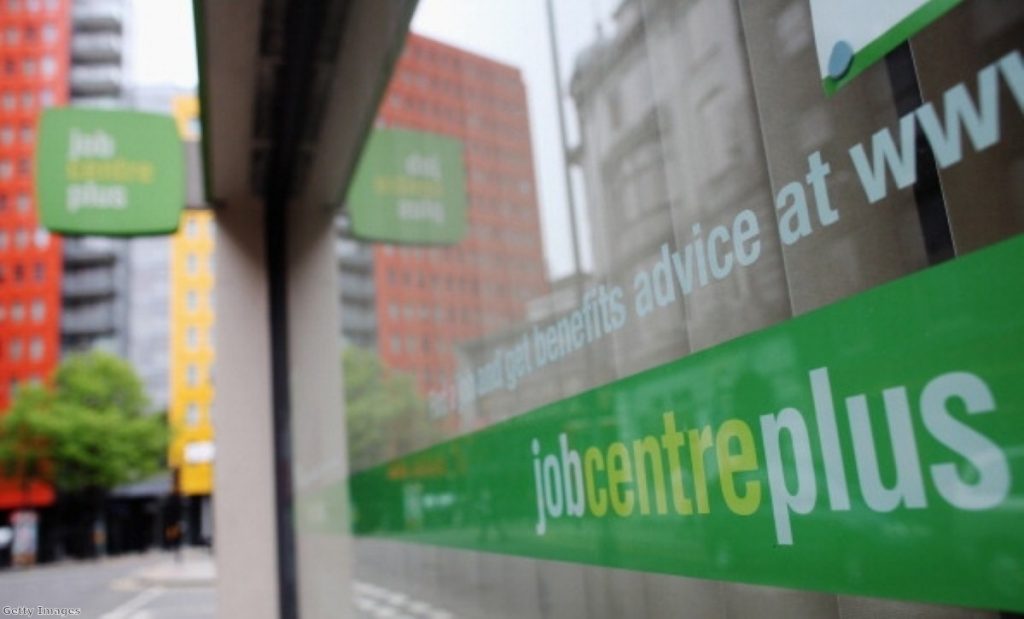Coalition basks in big unemployment drop
By Charles MaggsFollow @charlesmaggs
There are 82,000 less people seeking work now than three months ago, in a major boost to ministers.
Figures released today showed the biggest quarterly fall in unemployment since 2001.
Just over 2.5 million people are now unemployed, a rate of 7.8%, down from eight per cent in the summer and significantly lower than the 11.8% in the eurozone.


"Once again these figures show that the private sector is creating far more jobs than are being lost in the public sector," said employment minister Mark Hoban.
"It's a credit to British businesses that they're proving wrong those cynics who claimed the private sector wouldn't be able to step up.
"With unemployment falling again and more people in work, today's figures are very welcome. To see youth unemployment, excluding students, at its lowest level for three and a half years is particularly good news.
The number of people on jobseekers allowance only fell by 3,000 to 1.58 million, suggesting that long-term unemployment remains stubbornly high.
"Today's headline fall in unemployment will be welcome news for thousands of striving families really feeling the pinch this Christmas," shadow work and pension's secretary Liam Byrne said.
"But today's news brought fresh evidence that we are absolutely not out of the woods. Unbelievably, unemployment actually rose across a third of England, job growth has slowed to the slowest pace we've seen since January and pay packets are taking an absolute hammering. Last month prices rose at twice the rate of wages."
The figures mean that the record for the highest number of people in work in the UK has been broken for the second consecutive month at 29.6 million.
But an intriguing revelation from the figures is the rise in the number of older people in work. Over a million over 65s are now in work – double the amount ten years ago and up 13% this year alone.
Jim Hillage, director of research at the Institute for Employment Studies, said there are a number of reasons for the phenomenon.
"In some cases employers want to retain their skills and experience and encourage them to stay on, albeit on a part-time basis, and most older employees have been working for their employer for at least ten years and often in smaller workplaces," he explained.
"Conversely, some older people have to stay in work as their pensions are inadequate and it is interesting to note that employment of older workers is highest in London and the South East, where living costs are highest.
"Finally, there is also a growing group of self-employed who still want to retain their work connections and interests."












